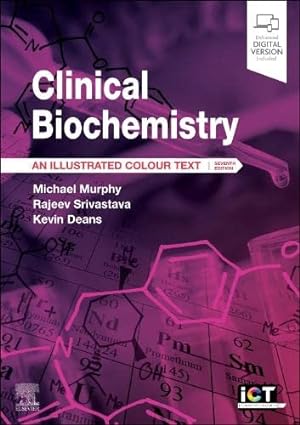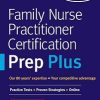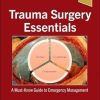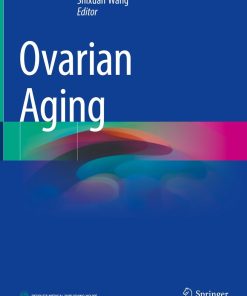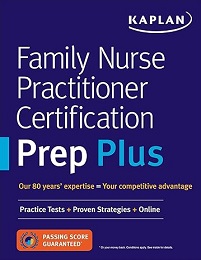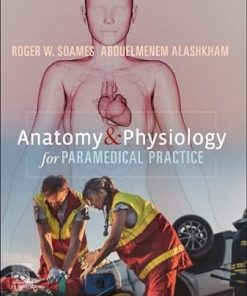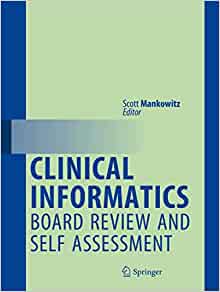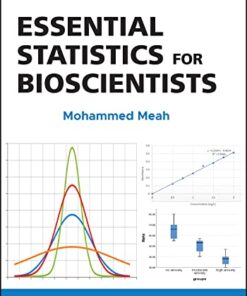Clinical Biochemistry: An Illustrated Colour Text, 7th edition
Please log in to view product prices.
Format : True PDF (No ToC & Index)
File Size : 29.6 MB
Clinical Biochemistry: An Illustrated Colour Text, 7th edition
If you’re looking for a comprehensive guide to Clinical Biochemistry, look no further than the best-selling textbook by Michael Murphy MA MD FRCP FRCPath, Rajeev Srivastava MS FRCS FRCPath, and Kevin Deans PhD FRCP FRCPath. This book is the seventh edition, with well over 80,000 global sales and translations in ten languages. It’s no surprise that it’s so popular, as it provides students with just the right amount of information they need to understand and apply clinical biochemistry in a clinical context.
This textbook is aimed at students who are new to the subject and is suitable for undergraduates across a range of courses, including medicine, nursing, biomedical science, pharmacy, and life sciences. Junior doctors will also find it useful. Despite its accessibility, there is no ‘dumbing-down’; all essential information is covered. The illustrations, which are a major part of its visual appeal, have been revisited and updated.
The book follows a practical and patient-centered approach that has made previous editions so popular. It retains the same basic structure, which has proved successful previously. The introductory section is followed by sections on core biochemistry, endocrinology, and specialized investigations. Each topic is presented on a richly illustrated two-page spread for easier understanding.
One of the standout features of Clinical Biochemistry is its clinical notes and case histories, which help readers apply learning to clinical practice. The book covers the bulk of routine analyses and their relevance to the clinical setting. It also addresses real-world practicalities, such as how modern hospital laboratories work, and how test results should be interpreted.
The accompanying e-book now includes some animations, which is a new addition. There are also MCQs for each chapter, which is helpful for those wanting to test their knowledge.
The book has been updated to include a new chapter on the pancreas, as well as two chapters that explain how some analyses are done – methods involving antibodies and methods that separate and identify analytes.
Overall, Clinical Biochemistry is an ideal source for understanding the background to biochemical tests and how they should be interpreted. It will help readers apply their learning in a clinical context. It’s clear to see why this book has been so popular over the years, with its practical approach, engaging illustrations, and easy-to-understand language.
If you’re a student or junior doctor looking to deepen your understanding of Clinical Biochemistry, or even just someone interested in the subject matter, this book is an excellent investment. It’s a reliable resource that you’ll find yourself referring to time and time again.
In conclusion, I believe that the Clinical Biochemistry textbook is a must-have for anyone who wants to learn more about this fascinating subject. The book is easy to read, comprehensive, and offers practical advice that readers can apply to real-world situations. Whether you’re studying medicine, nursing, or any other healthcare-related field, this book will undoubtedly expand your knowledge and appreciation for Clinical Biochemistry. So, if you’re looking for a reliable and informative source that will help you ace your exams or simply broaden your understanding of the subject, I highly recommend you order it today!
Product Details
- Clinical notes and case histories on help you to apply learning to clinical practice
- Covers the bulk of routine analyses and their relevance to the clinical setting
- Addresses real-world practicalities, such as how modern hospital laboratories work, and how test results should be interpreted
- Each topic presented on a richly illustrated two-page spread for easier understanding
- MCQs for each chapter
- Accompanying e-book now includes some animations
- Publisher : Elsevier; 7th edition (September 22, 2023)
- Language : English
- : 200 pages
- ISBN-10 : 0323880576
- ISBN-13 : 978-0323880572
Related Products
Basic Sciences Books
Basic Sciences Books
Family Nurse Practitioner Certification Prep Plus (Kaplan Test Prep) (AZW3 + + Converted PDF)
Basic Sciences Books
Trauma Surgery Essentials: A Must-Know Guide to Emergency Management
Anatomy Books
Biology Books
Biology Books
Biology Books
Biomimetics: Connecting Ecology and Engineering by Informatics (Original PDF from Publisher)
Biochemistry Books
Krebs: Neue Chancen auf Gesundheit, 2. Aufl Edition (German Edition) (Original PDF from Publisher)
Biochemistry Books
Krebs: Neue Chancen auf Gesundheit, 2. Aufl Edition (German Edition) (EPUB)
Biochemistry Books
Biotechnology for Waste Biomass Utilization (Original PDF from Publisher)
Biochemistry Books
Biochemistry Books
Biochemistry Books
Biochemistry Books
Biochemistry Books
Biochemistry Books
Biochemistry Books
Marine Biochemistry: Isolations and Techniques (Original PDF from Publisher)
Biochemistry Books
Biochemistry Books
Anatomy Books
Anatomy Books
Anatomy Books
Gray. Repaso de Anatomía: Preguntas y respuestas, 3 edición (Original PDF from Publisher)
USMLE COLLECTION BOOKS
High-Yield Q&A Review for USMLE Step 1: Biochemistry and Genetics (Original PDF from Publisher)
USMLE COLLECTION BOOKS
High-Yield Q&A Review for USMLE Step 1: Biochemistry and Genetics (EPUB)
USMLE COLLECTION BOOKS
Kaplan USMLE Step-1 Qbank Integrated Plan 6-month Subscription, Full Guarantee (Shared account)
USMLE COLLECTION BOOKS
Kaplan USMLE Step-1 Qbank Integrated Plan, 6-month Subscription, 1-month Guarantee (Shared account)
USMLE COLLECTION BOOKS
First Aid for the USMLE Step 2 CK, Eleventh Edition (Original PDF from Publisher)
USMLE COLLECTION BOOKS
USMLE Step 3 Secrets, 2nd edition (Original PDF from Publisher)
USMLE COLLECTION BOOKS
USMLE Step 2 CK Lecture Notes 2022: 5-book set (Kaplan Test Prep) (Original PDF from Publisher)
USMLE COLLECTION BOOKS
USMLE COLLECTION BOOKS
USMLE COLLECTION BOOKS
USMLE COLLECTION BOOKS
USMLE COLLECTION BOOKS
USMLE Step 1 Secrets in Color, 5th Edition (Original PDF from Publisher)
USMLE COLLECTION BOOKS
USMLE Step 1 Lecture Notes 2022: 7-Book Set (USMLE Prep) (High Quality Image PDF)
USMLE COLLECTION BOOKS
MedEssentials for USMLE Step 1, 5th Edition (USMLE Prep) (High Quality Image)
USMLE COLLECTION BOOKS
SURVIVOR’S GUIDE Quick Reviews and Test Taking Skills for USMLE STEP 2CK (EPUB + Converted PDF)
USMLE COLLECTION BOOKS
First Aid for the USMLE Step 1 2022, Thirty Second Edition (Original PDF from Publisher)
USMLE COLLECTION BOOKS
Master the Boards USMLE Step 2 CK 6th Edition (Original PDF from Publisher)
USMLE COLLECTION BOOKS
BRS Physiology, 8th Edition (Board Review Series) (EPUB + Converted PDF)
USMLE COLLECTION BOOKS
PCAT Prep Plus, 3rd Edition (Kaplan Test Prep) (EPUB + Converted PDF)
Statistics Books
Statistics for Psychology, 7th Edition (Original PDF from Publisher)
Statistics Books
Statistics Books
Statistics Books
Statistics Books
Clinical Informatics Board Review and Self Assessment (EPUB)
Statistics Books
Clinical Informatics Board Review and Self Assessment (Original PDF from Publisher)
Statistics Books
Essential Statistics for Bioscientists (Original PDF from Publisher)
Statistics Books
Regionalized Management of Medicine (Translational Bioinformatics, 17) (Original PDF from Publisher)
Statistics Books
Statistics Books
Statistics Books
Basic Sciences Books
Artificial Intelligence for Innovative Healthcare Informatics (Original PDF from Publisher)
Pharmacology Books
Pharmacology Books
Recent Advances in Therapeutic Drug Monitoring and Clinical Toxicology (Original PDF from Publisher)
Pharmacology Books
Pharmacology Books
Pharmacology Books
Pharmacology Books
Pharmacology Books
Pharmacology Books
Pharmacology Books
Pharmacology Books
Pharmacology Books
Pharmacology Books
Pharmacology Books
Pharmacology Books
Clinical Psychopharmacology: Principles and Practice (Original PDF from Publisher)
Pharmacology Books
Pharmacology Books
Pharmacology Books
Flaxseed: Evidence-based Cardiovascular and other Medicinal Benefits (Original PDF from Publisher)
Pharmacology Books
Secrets From A Herbalist’s Garden: A Magical Year of Plant Remedies (EPUB)
Pharmacology Books
Drug Design using Machine Learning (Original PDF from Publisher)
Pharmacology Books
Pharmacology Books
Applied Pharmaceutics in Contemporary Compounding, 4e (Original PDF from Publisher)
Pharmacology Books
Pharm Phlash!: Pharmacology Flash Cards, 3rd Edition (Original PDF from Publisher)
Pharmacology Books
Pharmacy Calculations, 6th Edition (Original PDF from Publisher)
Pharmacology Books
Study Guide for Lehne’s Pharmacology for Nursing Care, 11th Edition (Original PDF from Publisher)
Pharmacology Books
Physicians’ Cancer Chemotherapy Drug Manual 2022, 22nd Edition (Original PDF from Publisher)
Pharmacology Books
The Pharmacy Technician Workbook & Certification Review, 7th Edition (Original PDF from Publisher)
Pharmacology Books
Student Workbook for Pharmacology Made Simple (Original PDF from Publisher)
Pharmacology Books
Mosby’s Drug Guide for Nursing Students, 15th Edition (Original PDF from Publisher)
Pharmacology Books
Core Concepts in Pharmacology, 5th Edition (Original PDF from Publisher)
Pharmacology Books
2022 Nurse’s Drug Handbook, 21th Edition (Original PDF from Publisher)
Pharmacology Books
Pharmacology for Paramedics, 2nd Edition (Original PDF from Publisher)
Pharmacology Books
Biomarkers in Nutrition (Biomarkers in Disease: Methods, Discoveries and Applications) (EPUB)
Pharmacology Books
A Guide to Online Pharmacy Education: Teaching Strategies and Assessment Methods (EPUB)
Pharmacology Books
Flaxseed: Evidence-based Cardiovascular and other Medicinal Benefits (EPUB)
Pharmacology Books
Pharmacology Books
Drugs and the FDA: Safety, Efficacy, and the Public’s Trust (EPUB)
Pharmacology Books
Basic Sciences Books
Basic Sciences Books
Fundamentals of Pathology of Skin, 5th Edition (Original PDF from Publisher)
Basic Sciences Books
Lever’s Dermatopathology: Histopathology of the Skin, 12th Edition (EPUB3)
Basic Sciences Books
Robbins & Kumar Basic Pathology, 11th edition (Original PDF from Publisher) and video

